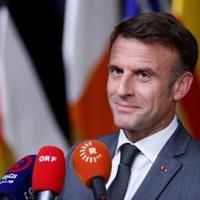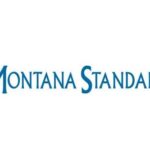A divided France is preparing for crucial parliamentary elections that could potentially see Marine Le Pen’s anti-immigrant and eurosceptic party come to power for the first time in history.
The candidates wrapped up their intense three-week campaigns at midnight on Friday, with all political activities suspended until the first round of voting on Sunday.
Voting has already commenced in France’s overseas territories, starting with Saint Pierre and Miquelon, followed by the Caribbean islands and French Guiana. The voting process will continue in other territories before moving to the mainland on Sunday.
Most polls indicate that Le Pen’s far-right National Rally (RN) is likely to secure the highest number of seats in the 577-member National Assembly, although it remains uncertain if they will achieve a majority.
A high voter turnout is expected, with final opinion polls showing the RN with a projected 35-37% of the vote, compared to 27.5-29% for the left-wing New Popular Front alliance and 20-21% for President Emmanuel Macron’s centrist camp.
After the first round of voting on Sunday, Macron plans to hold a government meeting on Monday to discuss the next steps leading up to the second round on July 7, according to government sources.
Analysts predict a year of political turmoil in France if a hung Assembly scenario emerges, a situation that lacks recent precedent in French politics.
Macron’s decision to call for snap elections following the RN’s victory in the European Parliament elections has caused uncertainty in France and led to a significant decline in the Paris stock exchange in June, the biggest monthly drop in two years.
French daily Le Monde has urged mobilization against the far right, warning that yielding power to them could undo centuries of progress and achievements.
Approximately 49 million eligible French citizens are set to participate in the elections.
– ‘The fear, the dread’ –
Brice Teinturier, head of the Ipsos polling firm, highlighted two major trends from the campaign: a sense of hope among left-wing and RN supporters for change, and the negative impact of fear and dread brought on by the RN and the hard-left France Unbowed party.
Macron’s strategy to present voters with a critical choice about France’s future may have backfired, as hate speech, intolerance, and racism have been on the rise during the campaign period.
Support for Macron’s centrist camp has declined, leading left-wing parties to set aside their differences and form the New Popular Front to combat the far right.
Le Pen’s efforts to reshape the image of the National Rally have paid off, resulting in increased support for the far right party.
If the far right secures a majority, Macron could face a challenging power-sharing situation, with the possibility of Jordan Bardella becoming prime minister in a tense cohabitation with the president.
However, the far right’s path to victory could be halted if the left and center-right join forces in the second round of voting.
Despite warnings of a potential “civil war,” Macron remains resolute in his decision to call for the elections and has vowed to complete his term until 2027, regardless of the election outcome.
are-fff-adc-as/db






